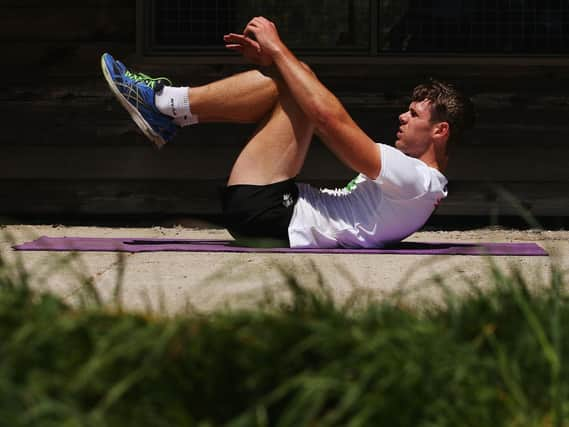Three mindset tips for fitness success - column


Unfortunately, this is what society leads us to believe. Discipline is just one factor needed for behaviour change.
Part 2 of the Complete Fitness mini-series is Mindset. Without a good mindset we can have all the knowledge in the world about movement, nutrition, mental health and stress, but if we don’t know how to implement change then it’s worthless.
Advertisement
Hide AdAdvertisement
Hide Ad

Here’s 3 tips you can implement right now:
1. The Power of Environment: Everything we do is the result of lots of little decisions. But our brain and our environment might try to sway our choices. Every day we are influenced to varying degrees by people, things we see, things we smell and more.
For example, when we do something we like, such as having a slice of pizza, dopamine (a feel-good hormone) is released. So, the next time you see or smell pizza, dopamine is released again, making you more likely to decide to have it. Our brains automatically stray from our health and fitness goals.
What can you do to counteract this?
Remove unhelpful cues – change your route home so you don’t walk past that fantastic pizza van. Don’t have chocolate in the house.
Advertisement
Hide AdAdvertisement
Hide AdIncrease helpful cues – get your exercise gear out the night before. Join a community of like-minded people in person or online.
2. Creating an Action Plan: The first step is making sure we have something to work towards, most people will do this but stop there. It’s the habits we perform on a daily basis that get us to our goal. When we think about habits, we need to have consistency; health and fitness goals take time.
BJ Fogg, a behaviour scientist, has an effective, simple structure for creating habits:
Make them specific – what gets measured, gets managed. Eg, I am going to run for 20 minutes three times a week, rather than I’m going to do cardio 3 times a week.
Advertisement
Hide AdAdvertisement
Hide AdMake them easy – once we get in the flow of building habits, they grow and grow. So, we want to make the habits really easy to complete so we succeed and move on to the next one. This also ties in with picking something we enjoy. e.g. choosing to workout at home rather than the gym if you’re concerned about time constraints or feeling self-conscious.
Have a cue – Attaching a new habit on to an existing habit is a great way of ensuring it happens. Eg, while the kettle is boiling, I’ll do 10 sit-ups.
3. Use All of the Tools: Implementing one small change for a short period of time won’t have much impact. But, implementing lots of little changes over time will lead to big results. If we follow the above, setting our environment for success and creating habits which are really easy to implement, change won’t seem so difficult.
Download my creating a habit template for free at www.olliebooth.com/habits-download
Comment Guidelines
National World encourages reader discussion on our stories. User feedback, insights and back-and-forth exchanges add a rich layer of context to reporting. Please review our Community Guidelines before commenting.